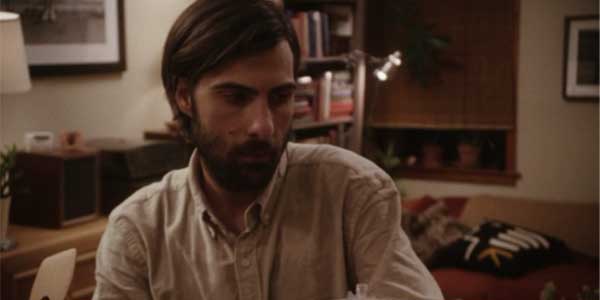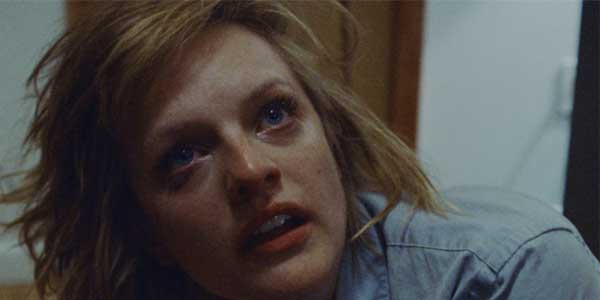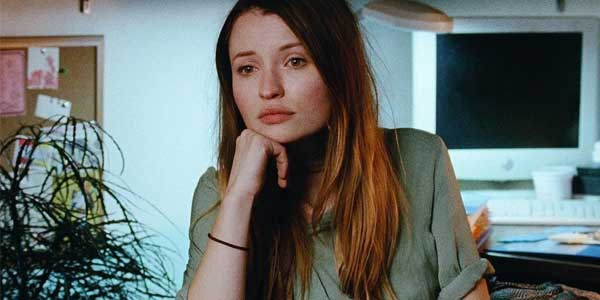The Beginner’s Guide: Alex Ross Perry, Writer & Director

Arguments over whether or not the main character in a movie has to be “likable” come about nearly as often as the prodigiously prolific writer/director/sometime actor Alex Ross Perry puts out a new film. There isn’t necessarily a causal link between these two phenomena, but Perry’s work does feature a lot of bastards.
His past life as an omnivorous video store clerk has lead to a diverse web of influences that inform his work. Breakthrough black comedy Listen Up Philip takes place in a similar intellectual Manhattan milieu as the films of Whit Stillman and Noah Baumbach; psychological drama Queen of Earth shares an acidic emotional pitch and formal qualities with John Cassavettes’s best relationship pictures; every feature he’s made to date dances between the alternately charming and repugnant amorality and venality reminiscent of Rainer Werner Fassbinder.
Despite the often deplorable actions of his characters and the routinely bleak situations they become mired in, Perry’s films are not joyless slogs. They’re hilariously, laugh-out-loud funny, their comedic observations as well-drawn as the emotional stings. It’s one of the many contradictions which help make Perry such an interesting filmmaker: the critical darling who stills needs to ask friends-of-friends to use their apartments as shooting locations, the unsentimental chronicler of millennial narcissism who also wrote the screenplay for Christopher Robin, the baldly independent director who stans for Avengers: Endgame at the Oscars.
Perry has written and directed six features since his debut Impolex in 2009. His latest, Her Smell, stars Mad Men and The Handmaid’s Tale’s Elisabeth Moss as an off-her-rocker riot grrrl frontwoman and is currently in limited release in the US. As the news that he’s to helm a Stephen King adaptation promises to catapult him into a mainstream recognition, here’s a potted history of the career of Alex Ross Perry so far.
Impolex (2009)

Indie filmmakers usually start small. A relationship drama, perhaps, or a workplace comedy that can take advantage of naturalistic amateur performances and real-world locations the moonlighting director has access to thanks to their day job. Shirking convention from the off, Perry made a war movie riffing on one of the densest novels in the contemporary American canon. Shot cheaply and quickly in the woods of Vermont, Impolex loosely adapts aspects of Thomas Pynchon’s phonebook-sized post-war satire Gravity’s Rainbow and parodies Terrence Malick’s The Thin Red Line along with it.
For seventy minutes the sleepy-eyed Riley O’Bryan, playing a version of the novel’s Tyrone Slothrop, stumbles through the New England brush as it doubles for wartime Europe. He’s a man far from home, tasked with tracking down a couple of exploded V2 rockets: the US reckon they can reverse-engineer the German’s technology to fuel the burgeoning space race. The problem is, he keeps nodding off and losing them; or being distracted by his ex-girlfriend (played by soon-to-be-Perry regular Kate Lyn Sheil) who keeps appearing in visions of spurned apoplexy; or hallucinating a talking octopus voiced by stand up comedian and Bob’s Burgers star Eugene Mirman.
This combination slacker/war movie has no highly-choreographed battle scenes. The stand-out sequences are instead those with Mirman’s cephalopod, and a nine-minute monologue about O’Bryan’s failed relationship that Sheil delivers straight to camera; both the staging of the latter and its content would become motifs throughout Perry’s career. Impolex remains mostly unavailable following its film festival showings. It was previously available through the now-defunct Filmstruck streaming service, and Perry hopes to issue a DVD of both his post-college debut and its follow-up.
The Color Wheel (2011)

For his sophomore feature Perry wrote, directed and co-starred in a blessedly mean-spirited dramedy which curdles into something even more unpleasant and difficult to watch in its final moments. He plays Colin, dragged on a cross-state trip by estranged sister JR (played by co-writer Carlen Altman), so she can pick up her belongings from a recent ex. With its black-and-white aesthetic and episodic structure, The Color Wheel initially resembles an inverse Frances Ha. Its characters are similarly disenfranchised from the worlds they wish to inhabit – Colin is a Creative Writing graduate who works in market research, JR a hopeless aspiring local news anchor – but instead of clinging onto some blind optimism, the bickering siblings react to their lowly position with caustic cynicism and cruelty.
Together they endure an alienating world of floundering relationships and awkward hipster parties. Colin is either a slumming or wannabe intellectual, his ironically racist bon mots nowhere near as sharp as he thinks. JR’s career aspirations are as naive and based in fantasy as her love life. With some amateurish performances (including a line flub it’s difficult not to wince at; if the rest of the film was aiming for naturalism, as opposed to a Stillman-esque heightened reality, it may have passed better) and consciously limited focus, The Color Wheel is perhaps even rougher around the edges than Impolex.
The petty, abrasive interactions between JR and Colin, and everyone else they come into contact with, are not solely blackly comic-provocations. They’re the lashings out of two vulnerable losers, an illustration of Schopenhauer’s hedgehog’s dilemma: in winter, hedgehogs must huddle together for warmth, yet their spines keep them at a certain distance. The need for human contact is innate in the misanthropic stars of The Color Wheel, but a toxic stew of neurosis, ego and hurt keep them apart. That is, until, the brother and sister finally become uncomfortably close, in a bravura finale sold entirely on Altman’s performance. Again, it unfolds in one take, and is the moment the film reconciles their repulsiveness with their vulnerability.
Listen Up Philip (2014)

For his breakthrough feature Perry retreated back behind the camera, tagging in a not-insignificant amount of established acting talent to take his place. Listen Up Philip stars Jason Schwartzman as the alternately self-serving and self-destructive struggling novelist of the title, in one of the great screen asshole roles. Elisabeth Moss joins him as long-suffering photographer girlfriend Ashley, with Jonathan Pryce as the Philip Roth-alike writer Ike Zimmerman who takes Philip under his wing, Krysten Ritter as his daughter Melanie, with the peerless Eric Bogosian providing omnipotent narration which dispassionately observes the petty, pathetic conflicts between this ensemble.
Here the articulate self-hatred first exhibited by the cast of The Color Wheel comes into its own. These characters can capably lay out their personality flaws and problems, but they have no intention of doing anything about them. Philip is a cruel narcissist who meets up with an ex-girlfriend to crow about the publication of his second novel, only to storm out when she’s not suitably upset. He abandons his current girlfriend to retreat to Zimmerman’s upstate holiday home mid-film, with Ross daringly allowing his title character to remain absent as Moss’s Ashley to is left to pick up the pieces.
He’s back for the final third, however, as Philip weathers the even more bruised and ferocious ego of Zimmerman, a hated teaching post at a liberal arts college, and a burgeoning new romance with a colleague played by Joséphine de La Baume. Philip’s put-downs are caustic and hilarious, his brutal truth-telling as difficult to watch as it is thrillingly aspirational. Who doesn’t sometimes wish they had the guts to speak their mind so truthfully, and so hilariously? Ultimately, though, his insularity comes to belay a lack of confidence, a disappointment that achieving his dream of being a published novelist isn’t quite as fulfilling as he hoped, resulting in a bittersweet and quietly tragic conclusion.
The Perry Repertory Company
From Listen Up Philip on, Perry has worked with a largely similar cast and crew for each of his independently-funded pictures. This is partially out of necessity, owing to the minuscule budgets his film are often made with; actors must be willing to work for a fraction of their usual rate, and the crew must be non-union, and that only happens when they know and trust the man marshalling them. Schwartzman and Moss have since become recurrent performers, with Kate Lyn Sheil on board from the off in Impolex.
Since Philip, he has also held onto cinematographer Sean Price Williams, whose 16mm handheld aesthetic, largely held in an performance-friendly close-up, has been put to great use in the crime thrillers of the Safdie brothers; composer Keegan DeWitt, who effortlessly shifts between the lilting orchestral score for Golden Exits and the jazz pastiche of Listen Up Philip; and editor Robert Greene.
This continuity of behind-the-camera talent has aided considerably in Perry’s increasingly diverse output in front, and he remains fiercely loyal to his collaborators. “It was astonishing to me that I would have conversations with people who wanted to hire me to direct a movie, and then three months down the line would be like ‘We don’t want Sean to shoot it, and we don’t want Robert to edit it,’” Perry has said on times he has been courted by mainstream producers. “Well, then you don’t want me to make it. It would be very dishonest of me to turn to my collaborators and be like, ‘Thank you for helping me get to this point, but I’m going to make a Marvel movie now and you can all go f*ck yourselves.”
Queen of Earth (2015)

Fresh from usurping Schwartzman in Listen Up Philip, Moss took centre stage with Perry’s next feature. Moving away from verbose dramas for an experiment in genre film-making, Queen of Earth flirts formally and conceptually with the female-centred psychodramas of Altman (3 Women), Polanski (Repulsion) and Bergman (Persona), whilst remaining in his established wheelhouse of volatile, vulnerable people lashing out at those closest to them. Here Moss plays Catherine, a woman on the verge of a nervous breakdown following the consecutive losses of her father (to suicide) and her long-term relationship (to a prick).
She retreats to the woodland summer home of a friend’s parents, seeking rest and isolation. Said friend, Katherine Waterston’s Virginia, alternately soothes and prods at Catherine’s shattered sense of self. The regular appearances by Patrick Fugit’s neighbour Rich, even less sympathetic to Catherine’s plight, only fan the flames of an inferno which threatens to engulf the whole forest. Flashbacks to the previous summer, when the psychological tables had been turned, tease out the reasons behind Virginia’s unusual behaviour.
Shot by Williams in claustrophobic close-up, the camerawork matches the isolated location: there is no escape for these characters, from either their present surroundings or past regrets. Those surroundings are objectively gorgeous, filmed in an upstate country home, with William’s 16mm film stock and use of natural light giving things the bleary, woozy vibe of sunstroke. Queen of Earth is an intense, claustrophobic and not-unsympathetic look at a more delicate cast of characters going through similarly transitional periods as the stars of Philip and The Color Wheel.
Golden Exits (2017)

Whereas Listen Up Philip and Queen of Earth capture characters at the worst points in their lives, Golden Exits bobs along at a more lilting pace. The handheld of the previous two features is swapped for the steadiness of a static tripod, with long dialogue scenes unfolding without the irritating, impatient flipping between two shots that typifies modern dramas. Every scene transition is a languorous fade to black, like the slow, lazy blinks of a contented cat. Which is not to say this is a movie where nothing happens; or maybe, things not happening is why drama threatens to break out.
Emily Browning plays Naomi, an Australian student who drifts into the orbit of a loosely-connected bunch of Manhattan creative types. Her presence doesn’t so much rock their respective worlds as provide a sounding board, a semi-objective independent adjudicator for those feeling the inertia of middle age. Among these shiftless older hipsters is archivist Nick, who Naomi begins working for, played with uncommon awkwardness and bathos by Beastie Boy Adam Horowitz. Then there’s wife Alyssa (Chloë Sevigny), on whom he cheated with a previous assistant; her cynical sister Gwen (Mary Louise Parker) and a returning Schwartzman, as shaggy-haired recording engineer Buddy.
Early on, Naomi expresses an interest in “films about ordinary people who don’t really do anything.” It serves as a mission statement for the Golden Exits, where instead of laying out all their personal problems, the characters do their very best to conceal them. There are no blow-out arguments or huge betrayals, just the little white lies and pointless deceptions of long-term relationships, flirtations with disaster that come from boredom and the sense that there might be more to life than brownstones and annual bro-outs.
Other Projects
Between The Color Wheel and Listen Up Philip, Perry made inroads into cable television, which has long been a more consistent source of income for up-and-coming indie directors — Rian Johnson bolstered his post-Brick, pre-Last Jedi career by helming some of the most critically acclaimed episodes of Breaking Bad, for example. Perry was not brought on as a hired gun for an instalment of an existing series, however. For HBO’s burgeoning streaming lineup he developed The Traditions, a series of ten-minute shorts which shuttled between the caustic comedy and profoundly downbeat personal drama he would finesse for Philip. Despite completing a season’s worth of shorts, in which he starred, HBO chose not to air them.
Since then, Perry has more-or-less sewn his own path. That is until the last couple of years, when screenwriting work has been what keeps the lights on in his Brooklyn apartment. Arlington Road and Mothman Prophecies director Mark Pellington slid into his Facebook DMs to commission the script for ensemble drama Nostalgia, released last year with a starry cast including Jon Hamm, Bruce Dern, and Ellen Burstyn. An even bigger platform for his writing emerged simultaneously, as the brashly unsentimental Perry was the unlikely hire for Disney’s Christopher Robin, a Hook-style slab of bittersweet nostalgia with Ewan McGregor as the titular AA Milne character all grown up and reconnecting with Pooh, Piglet, and the other denizens of the Hundred Acre Wood.
Since The Color Wheel he’s also maintained a sideline as a supporting actor in indie dramedies of a similar size and scope. He had a passing role in Lena Dunham’s debut feature Tiny Furniture, which served as a blueprint for her show Girls; joined Schwartzman for the Bob Byington film 7 Chinese Brothers; and, most memorably, appeared alongside alt-comedy stars Adam Pally, Nick Kroll, Bret Gelman and Thomas Middleditch in Joshy. Each part has been a variation on the nervous, neurosis-laden awkwardness of The Color Wheel’s Colin, but hey: he does it well.
Her Smell (2018)

A good rock biopic is hard to find. Far too many follow the tired-and-tested, crummy-and-cliche plot structure parodied into an early grave (yet inexplicably still twitching) by Walk Hard: struggling musician has meteoric rise to fame, becomes a drugs/sex/booze/all the above-obsessed monster, sorts themselves out, continues being successful. Or worse: you get a band-approved feature like Bohemian Rhapsody, and they don’t even let you do the fun middle bit with all the bad stuff.
Perry appears to have hit upon the solution by inventing a rock star out of whole cloth for his most recent directorial effort. Having cribbed elements from the careers of everyone from the recently-reunited riot grrrl rockers L7 to Guns ‘n’ Roses, and taking musical inspiration from The Breeders and Elastica, Her Smell allows Moss to get her teeth into her most meaty leading role to date. Across five scenes at different points in her career, she essays the highs and truly abject lows of punk frontwoman Becky Something, as fascinating and reprehensible a lead character as Perry has put on screen.
Moss is already receiving significant attention for her performance, whose Becky follows the traditional soar to stardom, wrestle with addiction and ego, burn out and attempt at both a professional and personal comeback whose result is nonetheless not guaranteed. She’s again helped by an able ensemble, including Amber Heard as an estranged former mentor, Dan Stevens as an estranged former husband, and Cara Delevingne, Agyness Deyn and Ashley Benson as estranged former bandmates. In terms of plumbing the depths of rockstar excess, indulging somewhat in that decadent world, and telling a compelling story, Her Smell has The Dirt eating its dust.
Final Thoughts
It’s an interesting time to be an Alex Ross Perry fan. Each film he has written and directed to this point has been made with a significantly small budget, largely out of necessity. That could all be about to change, however. e has previously kicked the tires of bigger projects, including an adaptation of the Don DeLillo novel The Names, but it looks like his graduation to the studio system will take the form of a full-bodied genre flick: he is currently attached to write and direct both the teen horror sequel Fear Street 2 (due out just a month after Leigh Janiak’s first film) and a version of Stephen King’s short story “Rest Stop.” Whether you’re already aboard the hype train for these projects, or have an itch to see some purposefully abrasive and uproariously funny examples of modern American independent cinema, you could do a lot worse than investigating the work of the indefatigable Alex Ross Perry.
Which is your favourite of Alex Ross Perry’s films so far? Are you excited to see him tackle a bigger-budget studio horror film? Tell us in the comments below!
Does content like this matter to you?
Become a Member and support film journalism. Unlock access to all of Film Inquiry`s great articles. Join a community of like-minded readers who are passionate about cinema - get access to our private members Network, give back to independent filmmakers, and more.













